Reading Skills Elementary Phonics Worksheets for Ages 4-7
5 filtered results
-
From - To
Unlock your child's reading potential with our expertly designed Elementary Phonics Worksheets for ages 4-7. At Kids Academy, we provide engaging, printable worksheets that lay the foundation for essential reading skills through fun and interactive activities. Our phonics-based exercises help young learners recognize letter sounds, develop word families, and improve their decoding abilities. Each colorful worksheet is created to capture children's imagination while promoting critical thinking and confidence in reading. Ideal for home or classroom use, our worksheets ensure effective and enjoyable learning experiences. Start your child's reading journey today with Kids Academy!
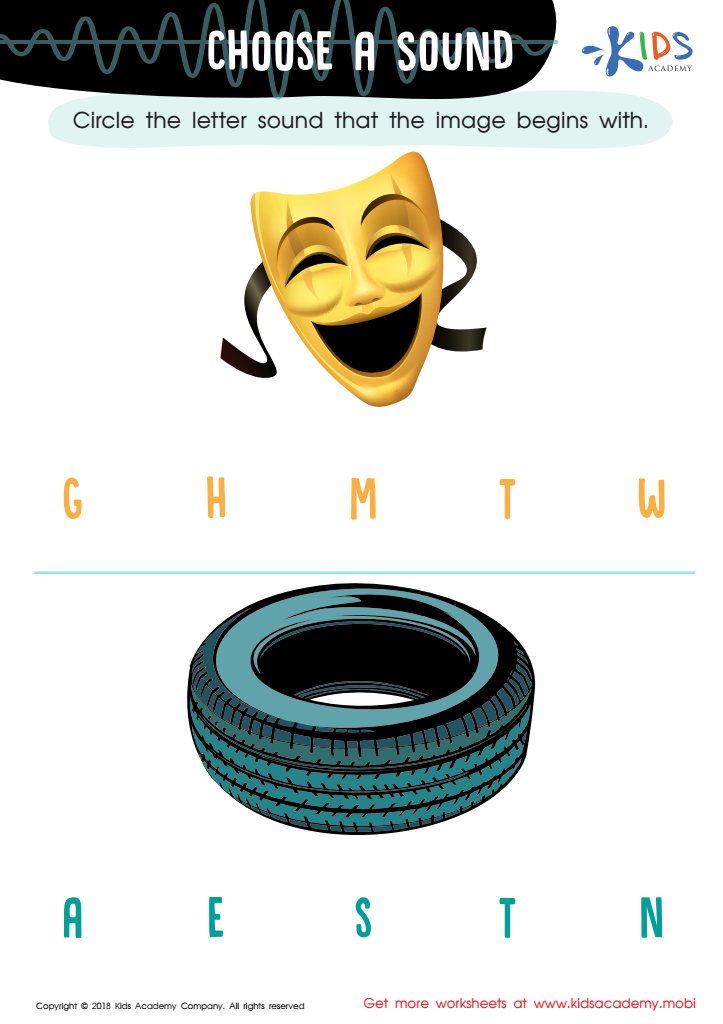

Choose a Sound Worksheet
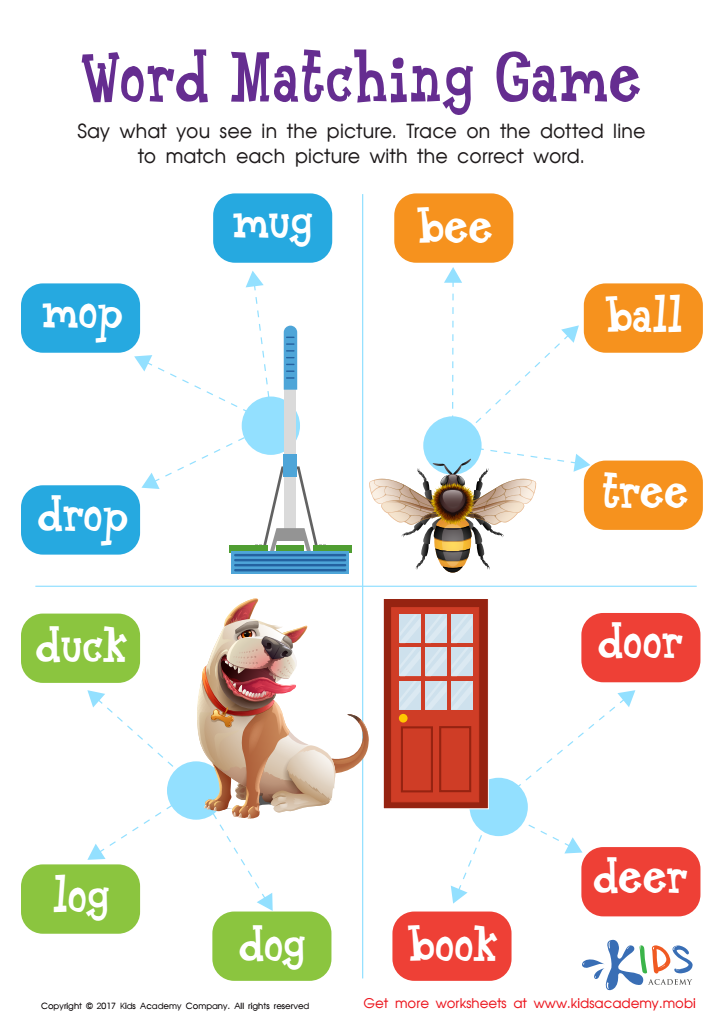

Word Matching Game Worksheet
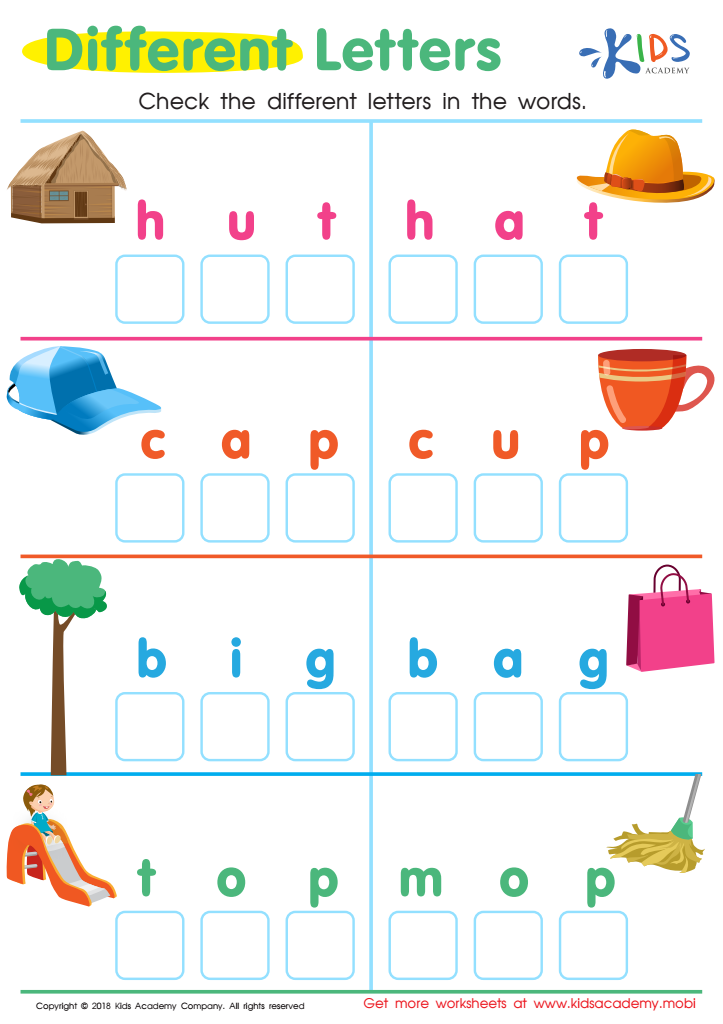

Different Letters Reading Worksheet
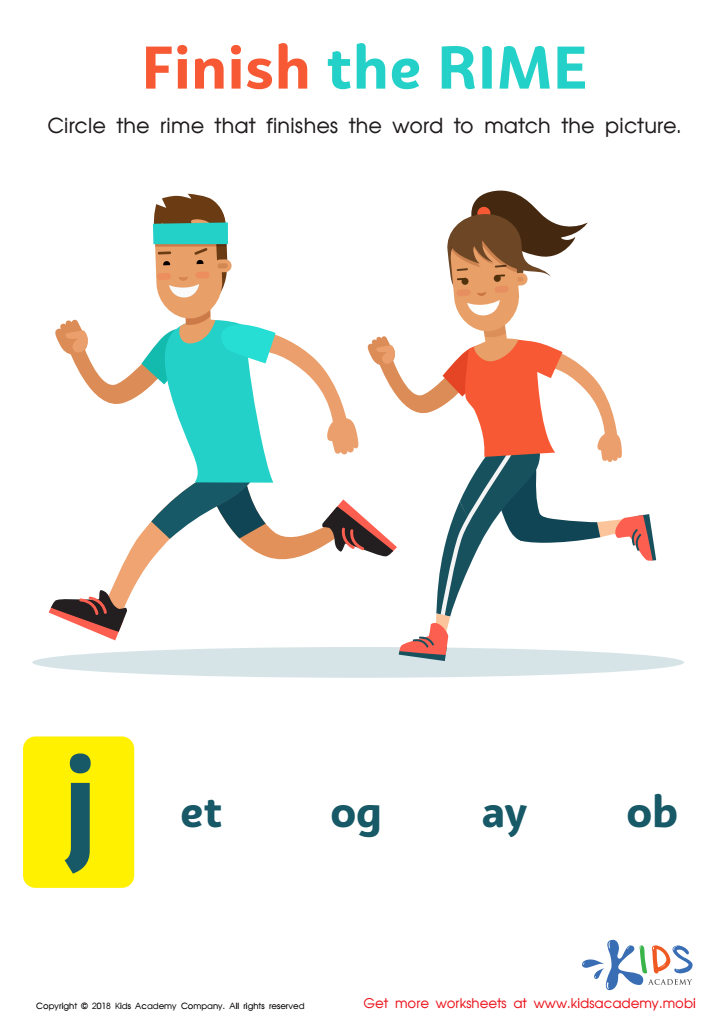

Finish the Rime Worksheet
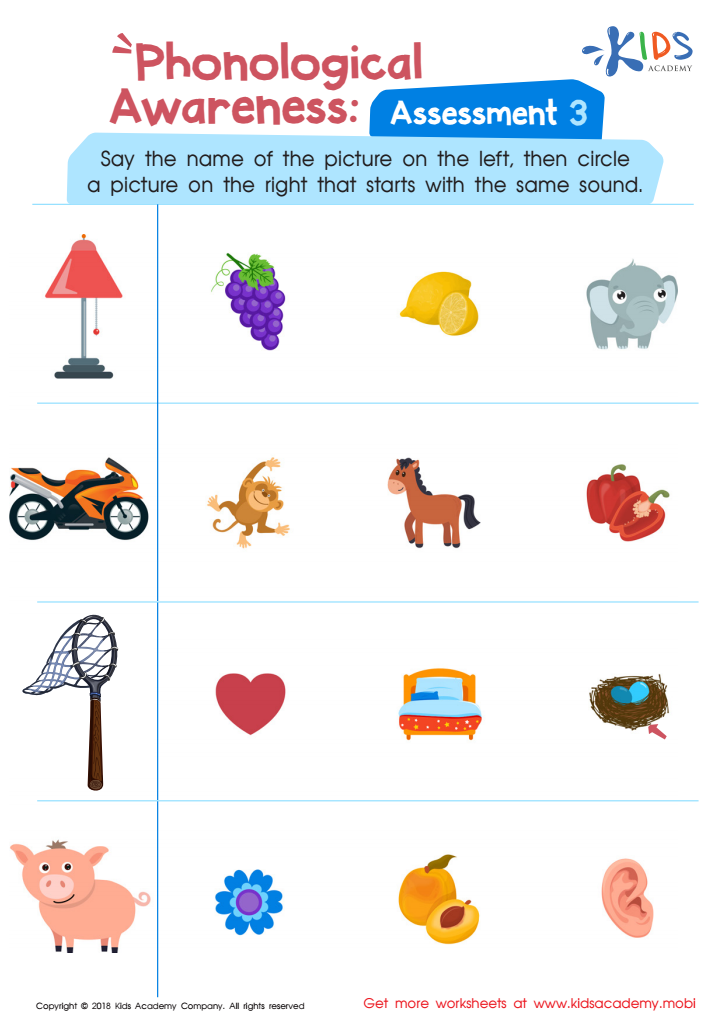

Phonological Awareness: Assessment 3 Worksheet
Parents and teachers should prioritize elementary phonics for ages 4-7 because these early reading skills form the foundation for lifelong literacy and learning. During these formative years, children’s brains are exceptionally receptive to language acquisition. Phonics, which teaches the relationship between sounds and their corresponding letters, enables children to decode new words independently, boosting their reading competence.
This fundamental skill is crucial for developing reading fluency, comprehension, and vocabulary. Children who grasp phonics early are more likely to become proficient readers. Proficient readers not only excel in language arts but also find greater success across all academic subjects because reading is integral to most learning activities.
Moreover, strong reading skills foster cognitive development, critical thinking, and imagination. They encourage a love for books and learning, setting the groundwork for academic engagement and curiosity. Early mastery of phonics also builds a child’s confidence and equips them to tackle complex texts as they progress through their education.
Therefore, by investing time and resources into teaching phonics at this critical stage, parents and teachers are ensuring children have the essential tools for academic success, personal growth, and a bright future. Ensuring a solid phonics foundation is akin to giving children the keys to unlocking endless learning opportunities.
 Assign to My Students
Assign to My Students
















